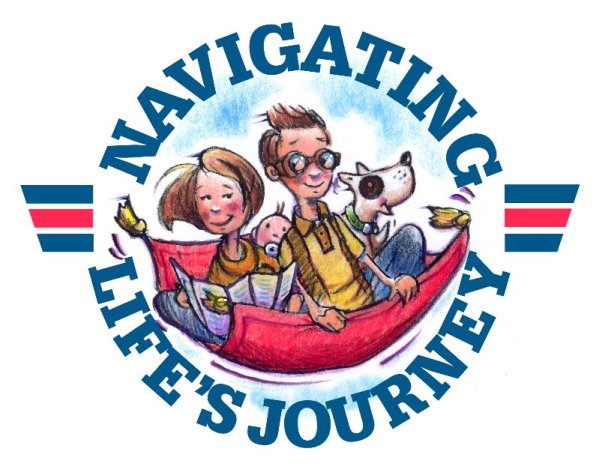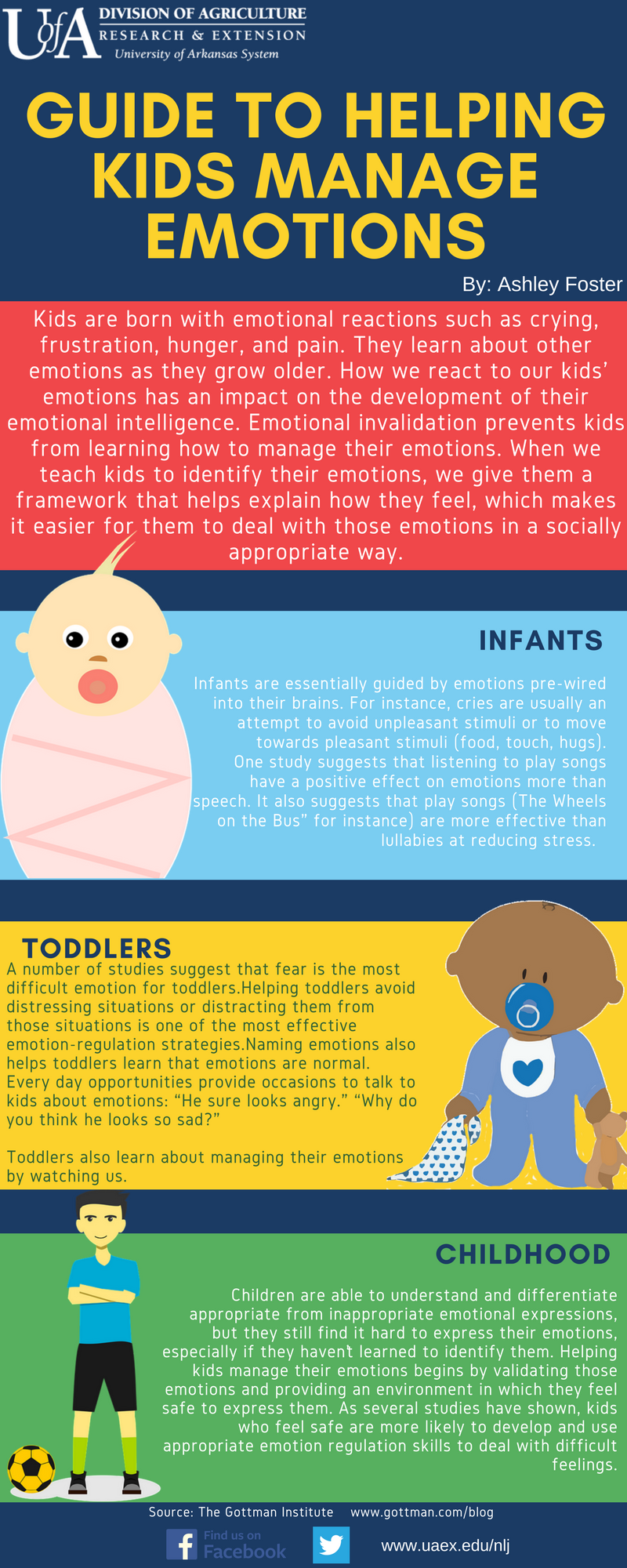
Navigating Life's Journey Blog
Helping others navigate this journey of Life!
A weekly blog from the Family & Consumer Sciences Department
Guide to Helping Kids Manage Emotions

Infants
Infants are essentially guided by emotions pre-wired into their brains. For instance, cries are usually an attempt to avoid unpleasant stimuli or to move towards pleasant stimuli (food, touch, hugs).One study suggests that listening to play songs have a positive effect on emotions more than speech. It also suggests that play songs (The Wheels on the Bus" for instance) are more effective than lullabies at reducing stress.
Toddlers
A number of studies suggest that fear is the most difficult emotion for toddlers.Helping toddlers avoid distressing situations or distracting them from those situations is one of the most effective emotion-regulation strategies.Naming emotions also helps toddlers learn that emotions are normal. Every day opportunities provide occasions to talk to kids about emotions: “He sure looks angry.” “Why do you think he looks so sad?” Toddlers also learn about managing their emotions by watching us.
Childhood
Children are able to understand and differentiate appropriate from inappropriate emotional expressions, but they still find it hard to express their emotions, especially if they haven’t learned to identify them. Helping kids manage their emotions begins by validating those emotions and providing an environment in which they feel safe to express them. As several studies have shown, kids who feel safe are more likely to develop and use appropriate emotion regulation skills to deal with difficult feelings.
Resource: www.gottman.com/blog
